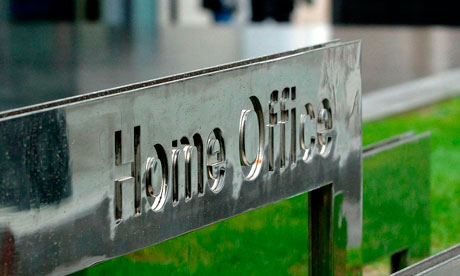We are an “unsuccessful church”, the exhausted Rev Alan Everett told me, as I persuaded him to take a break and have some lunch. He meant that they only get 30 to 60 people in the pews on a Sunday morning and that it wasn’t one of those whizzy Alpha course churches beloved by London bishops and their growth spreadsheets. Next to us in the church’s sunny courtyard, an extended Muslim family talked openly about their escape from the fire. “Our lungs are full of smoke but at least, thank God, we are all alive.” A church worker told them where to find new shoes and clothes. It felt like a refugee camp. Perhaps it was a refugee camp. And hanging over the whole scene, Grenfell Tower, black and enormous. It stands as a biblical-scale condemnation to a whole society.
In the days after the fire, the church of St Clement’s, Notting Dale, became a hub for grieving families, generous donations of clothes and food – and camera-ready politicians. First Jeremy Corbyn came. Then a furtive Theresa May met a few residents in the church. Then Sadiq Khan was at mass on Sunday morning. I wanted to know from Everett how the church was able to respond so quickly in a way that the council didn’t. “I was woken up at 3am by a priest who lives in the tower, and so I came down to the church, opened the doors and turned the lights on,” he said. It all began from there. People started coming in out of the dark – often passersby looking to help. First they sorted out tea and coffee. By 7am, they had a fully stocked breakfast bar, with volunteers organising themselves into teams. Within hours, local restaurants were delivering food; clothes began to pile high in the church sanctuary – about 40 Transit vans’ worth, the vicar estimates. The place looked like a warehouse.
Listening to Everett, it struck me that “opening the doors and turning the lights on” was precisely the difference between the church and a local authority that had become arms’ length from its residents, continually dealing with local people only through intermediary organisations such as the locally much-hated Kensington and Chelsea Tenant Management Organisation. The nicest thing I heard about the royal borough from local people was that it had outsourced its care for the poor as a cost efficiency. The worst, that it was deliberately running down its stock of social housing so that they could eventually bring in the developers.
Listening to Everett, it struck me that “opening the doors and turning the lights on” was precisely the difference between the church and a local authority that had become arms’ length from its residents, continually dealing with local people only through intermediary organisations such as the locally much-hated Kensington and Chelsea Tenant Management Organisation. The nicest thing I heard about the royal borough from local people was that it had outsourced its care for the poor as a cost efficiency. The worst, that it was deliberately running down its stock of social housing so that they could eventually bring in the developers.
In his Sunday morning sermon, Fr Robert Thompson, an assistant priest in the parish and also a local Labour councillor, channelled his anger. Contrasting the good communication of the local volunteers with the bad communication of the authorities, he said: “The people on the lowest incomes of this parish simply do not feel listened to, either this week or in previous years, by those in power. Worse than that, what the whole issue of the cladding and the lack of sprinklers may well highlight is that some people in our society have simply become excess and debris on our neoliberal, unregulated, individualistic, capitalist and consumerist society.” The churchy way of saying “I agree” with all this is “amen”. The church of St Clement was built and paid for in 1867 by Alfred Dalgarno, a philanthropist vicar with deep pockets and a compassion for the poor. Thompson is a councillor for the Dalgarno ward, named after him. “This parish was built pre-welfare state and it is going to be needed as we now enter the post-welfare state,” he told me, chillingly.
Of course, parishes like St Clement are only superficially unsuccessful. Its secularised charity arm, the Clement James centre, helps thousands of local people every year, into work, into university. That’s why the parish is so trusted locally. “We are called to share in the brokenness and the forgottenness of the people we serve,” the vicar explained. In poor parishes, the job is to keep the doors open and the lights on. And this being permanently present is no small thing. Not least because, as Christians believe, the light will always beckon people out of the darkness.
Of course, parishes like St Clement are only superficially unsuccessful. Its secularised charity arm, the Clement James centre, helps thousands of local people every year, into work, into university. That’s why the parish is so trusted locally. “We are called to share in the brokenness and the forgottenness of the people we serve,” the vicar explained. In poor parishes, the job is to keep the doors open and the lights on. And this being permanently present is no small thing. Not least because, as Christians believe, the light will always beckon people out of the darkness.



 199 Comments
199 Comments
